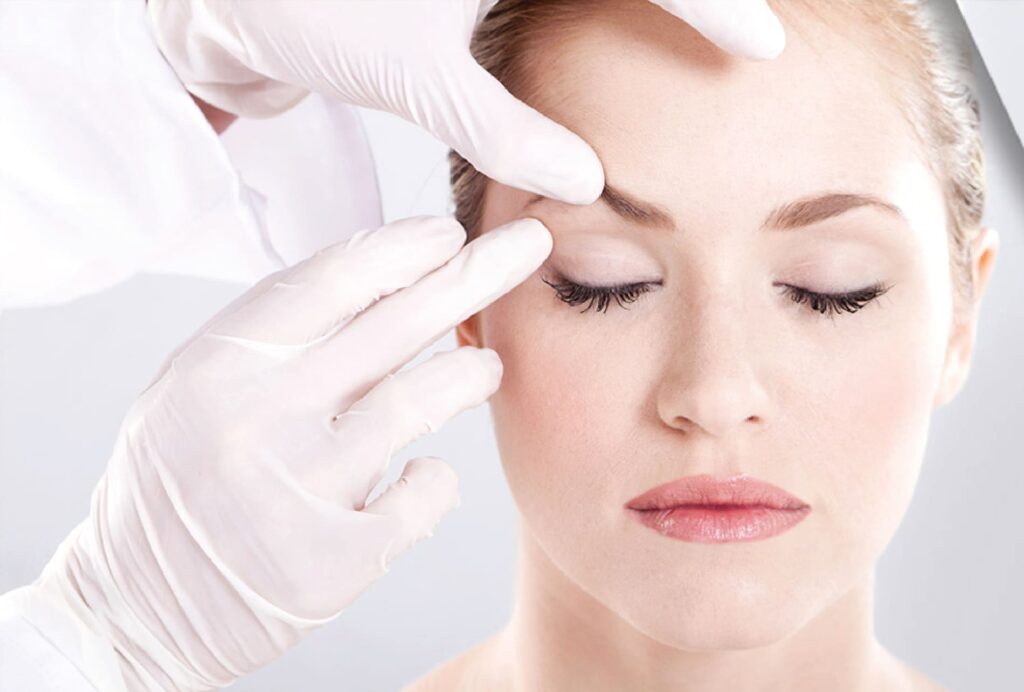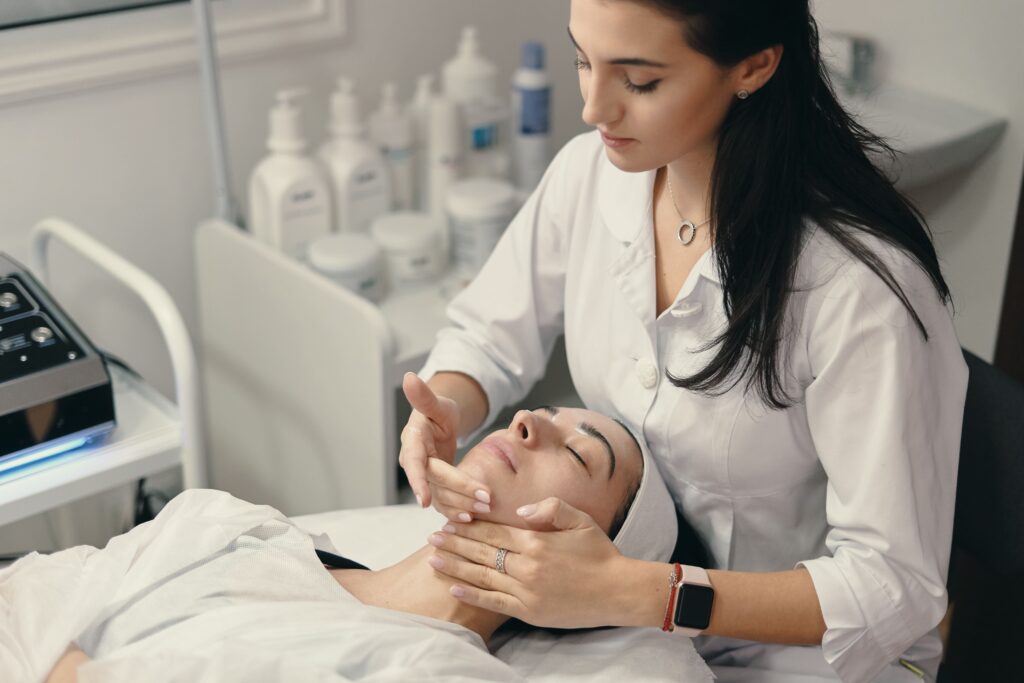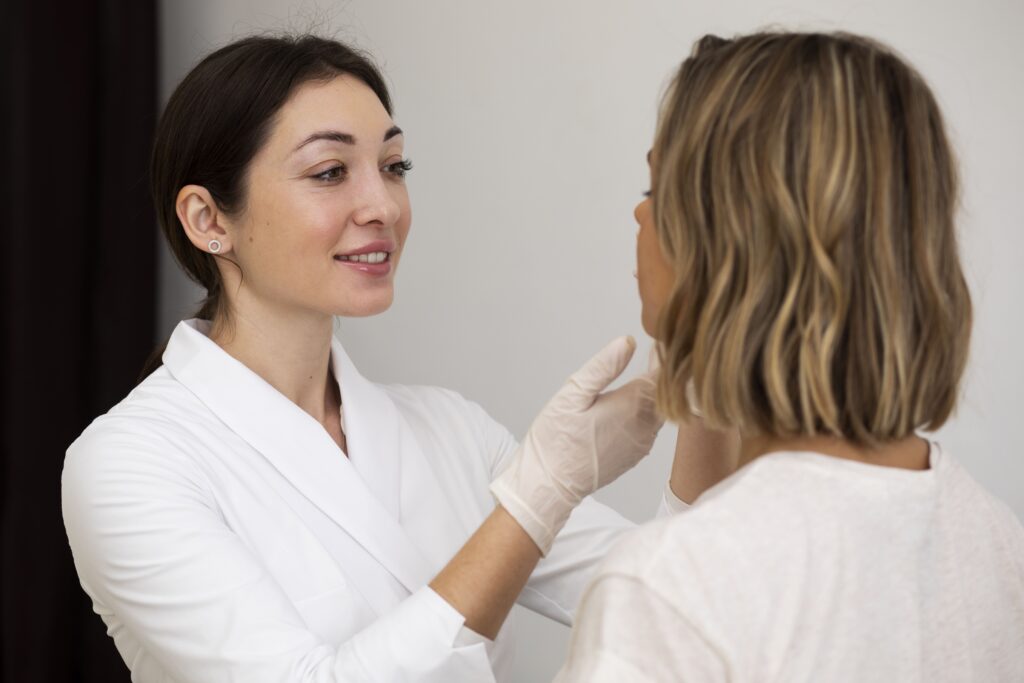Best Dermatologist in Dubai – Comprehensive Skin Care at Al Hana Modern Medical Center
When it comes to skin health, finding the best dermatologist in Dubai is crucial for achieving and maintaining healthy, radiant skin. At Al Hana Modern Medical Center, we offer comprehensive dermatological care provided by highly trained and experienced dermatologists. Our expert team is committed to addressing a wide range of skin-related concerns, including common conditions like acne, eczema, psoriasis, and rosacea. We combine the latest medical advancements with a personalized approach to deliver effective treatments tailored to your unique needs.
Why Choose Us for Dermatology in Dubai?
At Al Hana Modern Medical Center, we understand that skin care requires both expertise and experience. Our dermatologists are not only board-certified but also stay updated on the latest advancements in dermatology and cosmetic dermatology treatments. We have been serving patients in Dubai for years, ensuring that you receive trustworthy and authoritative care in a state-of-the-art facility.
Our Dermatology Services
Dermatology is a specialized medical field focusing on the diagnosis, treatment, and prevention of various skin conditions, diseases, and aesthetic concerns. Whether you’re dealing with common skin conditions or seeking cosmetic enhancements, our dermatologists are here to help. Here are some of the services we offer:
Common Skin Conditions We Treat
Our dermatologists are skilled in diagnosing and treating a variety of skin conditions:
- Acne: Acne affects people of all ages and can significantly impact self-confidence. We offer both medical and cosmetic treatments for acne, including topical treatments, oral medications, chemical peels, and laser therapy for acne scars.
- Eczema: Also known as atopic dermatitis, eczema requires long-term management. We provide tailored treatments, including moisturizers, topical corticosteroids, and immune-modulating medications to relieve symptoms.
- Psoriasis: A chronic autoimmune condition, psoriasis leads to thickened, scaly skin. Our treatment options include phototherapy, biologic drugs, and topical treatments to manage symptoms.
- Rosacea: This common facial skin condition causes redness and visible blood vessels. We offer laser treatments, lifestyle modifications, and topical medications to help manage rosacea flare-ups effectively.
- Dermatitis: Our dermatologists treat all types of dermatitis, including contact dermatitis and seborrheic dermatitis, through personalized treatment plans aimed at reducing inflammation and managing triggers.

Cosmetic Dermatology – Enhancing Your Natural Beauty

Cosmetic dermatology focuses on enhancing the appearance of the skin, hair, and nails. Some common cosmetic dermatology procedures include:
- Botox and Dermal Fillers: These treatments can help reduce wrinkles, restore lost facial volume, and rejuvenate your skin. Whether you’re looking for Botox for wrinkle reduction or dermal fillers to contour your face, we provide safe and effective solutions.
- Chemical Peels: A popular treatment for improving skin texture, chemical peels help reduce the appearance of fine lines, sun damage, and acne scars, promoting a refreshed complexion.
- Laser and Light Therapies: Using cutting-edge technology, we offer treatments for pigmentation issues, sun damage, and unwanted hair removal. These laser therapies can also help with skin rejuvenation and scar reduction.
- Microdermabrasion: A non-invasive procedure that exfoliates the outer layer of your skin, helping with mild acne scars and improving overall skin tone and texture.
- Hair Restoration: Struggling with hair loss? We offer treatments such as platelet-rich plasma (PRP) injections and hair transplant surgery for conditions like androgenetic alopecia.
Skin Cancer Detection and Treatment – Early Diagnosis Saves Lives
Skin cancer is one of the most common cancers worldwide, but early detection significantly increases the chances of successful treatment. Our dermatologists offer regular skin cancer screenings to detect early signs of:
- Basal Cell Carcinoma (BCC): The most common form of skin cancer, typically caused by long-term sun exposure.
- Squamous Cell Carcinoma (SCC): This cancer often presents as red, scaly patches and can grow rapidly if untreated.
- Melanoma: The most dangerous type of skin cancer, melanoma can spread quickly. If you notice changes in a mole’s shape, size, or color, our dermatologists will evaluate it immediately.
Regular screenings and patient education about skin self-examinations are essential in the prevention and early detection of skin cancer. We also provide surgical excisions, Mohs surgery, and other advanced treatments based on your specific diagnosis.

Pediatric Dermatology – Specialized Care for Infants, Children, and Adolescents
Our expert pediatric dermatologists specialize in diagnosing and treating skin conditions in children, ensuring a compassionate approach that minimizes discomfort for young patients. We treat a range of pediatric skin conditions, including:
- Atopic Dermatitis (Eczema): Eczema in children often requires careful management. Our treatment plans include gentle skincare regimens and medications tailored to pediatric needs.
- Birthmarks: We provide treatments for vascular and pigmented birthmarks like port-wine stains and café-au-lait spots.
- Diaper Rash: Our specialists can guide parents on preventing and treating persistent diaper rash.
- Genetic Skin Disorders: We offer long-term management and care for rare genetic conditions such as epidermolysis bullosa and ichthyosis.

Preventive Skin Care Tips from Our Experts
Taking care of your skin isn’t just about treatments—prevention is key. Here are some dermatologist-approved tips to help you protect and maintain healthy skin:
- Sun Protection: Always use a broad-spectrum sunscreen with an SPF of 30 or higher. Reapply every two hours, especially after swimming or sweating.
- Avoid Tanning Beds: Prolonged sun exposure and tanning beds increase your risk of developing skin cancer, including melanoma.
- Regular Skin Checks: Perform regular self-examinations to look for any changes in your moles or new skin growths. Schedule annual skin cancer screenings with a dermatologist.
FAQ
- Protect your skin from the sun by wearing sunscreen, seeking shade, and wearing protective clothing.
- Avoid tanning beds and prolonged sun exposure, especially during peak hours.
- Perform regular self-examinations and schedule regular skin cancer screenings with a dermatologist.
- Dermatologists may recommend a combination of topical treatments (such as retinoids or benzoyl peroxide), oral medications, and lifestyle modifications.
- Treatment plans may also include professional procedures like chemical peels or laser therapy.
- Dermatologists can recommend a range of treatments, including topical retinoids, dermal fillers, Botox injections, chemical peels, and laser resurfacing.
- The choice of treatment depends on factors such as skin type, severity of wrinkles, and individual goals.
- Dermatologists typically prescribe moisturizers, topical corticosteroids, or immune-modulating medications.
- Avoiding triggers like harsh soaps, irritants, and allergens is also important in managing eczema.
- Look for changes in moles or the development of new growths.
- Warning signs include asymmetrical shape, irregular borders, changes in color, and diameter larger than a pencil eraser.
- If you notice any changes, it’s important to have them evaluated by a dermatologist.
- Dermatologists can evaluate the underlying cause of hair loss and recommend appropriate treatments.
- Options may include medications, topical treatments, PRP injections, or hair transplant surgery.
Dermatologists may suggest lifestyle modifications (avoiding triggers like spicy foods or alcohol), topical medications, oral antibiotics, or laser therapy.
It’s recommended to have a skin check with a dermatologist at least once a year, especially if you have a history of skin cancer or other risk factors.
- Dermatologists may recommend a skincare routine tailored to your specific needs, including cleansing, moisturizing, and sun protection.
- Procedures like chemical peels, microdermabrasion, or laser treatments can also improve skin texture and tone.
- Dermatologists recommend using gentle cleansers, moisturizers, and avoiding hot showers.
- Applying moisturizer immediately after bathing helps lock in moisture.
- Humidifiers can also be used to add moisture to indoor air.

